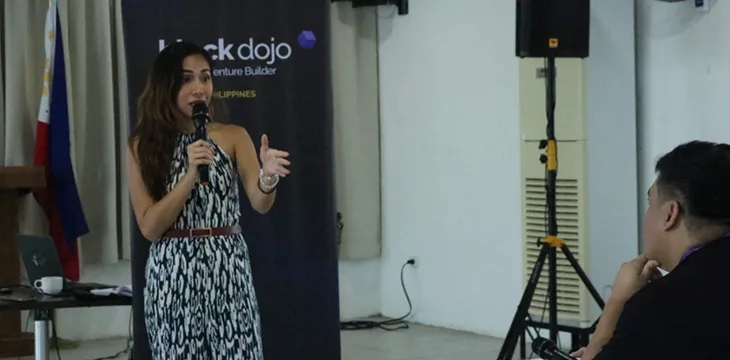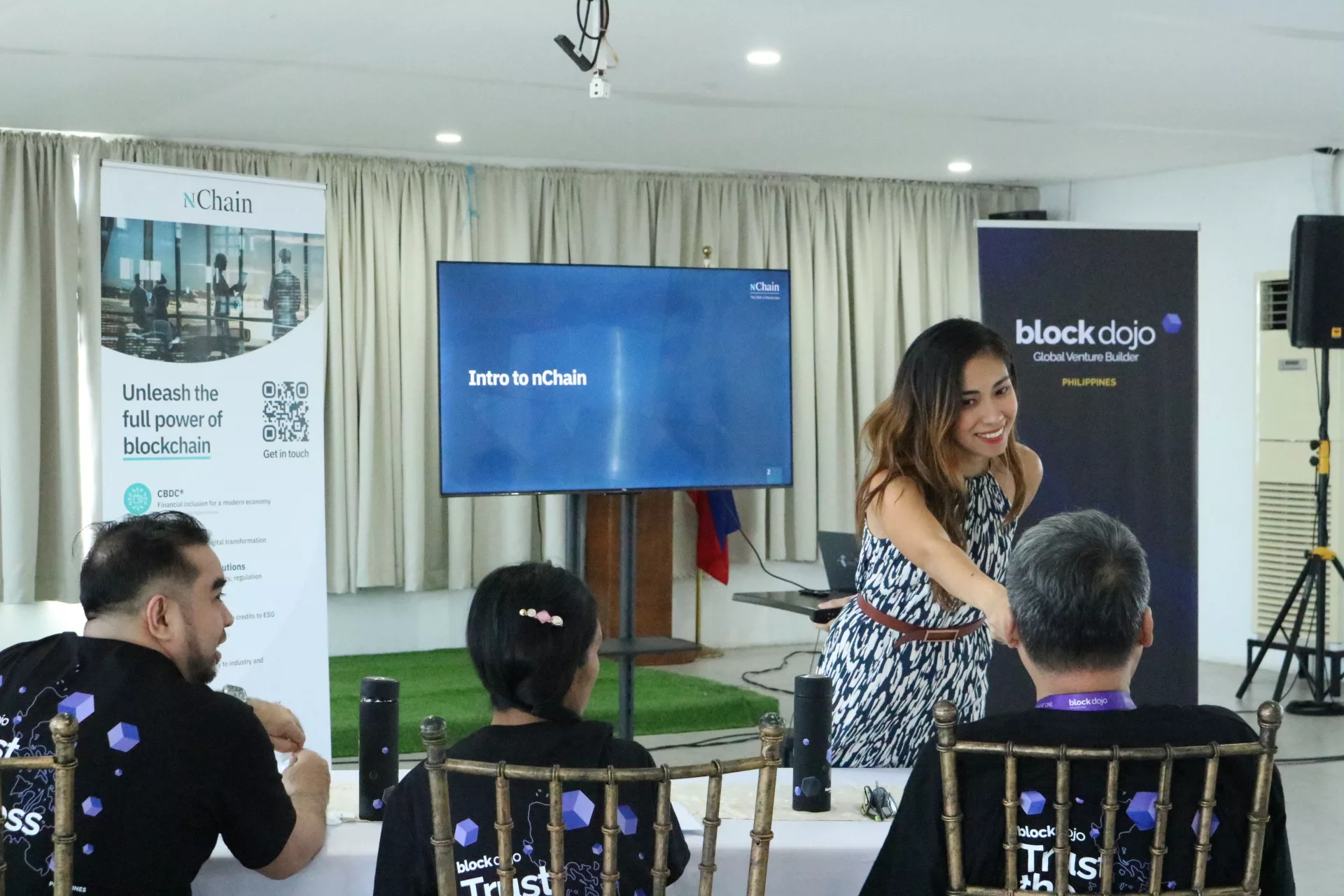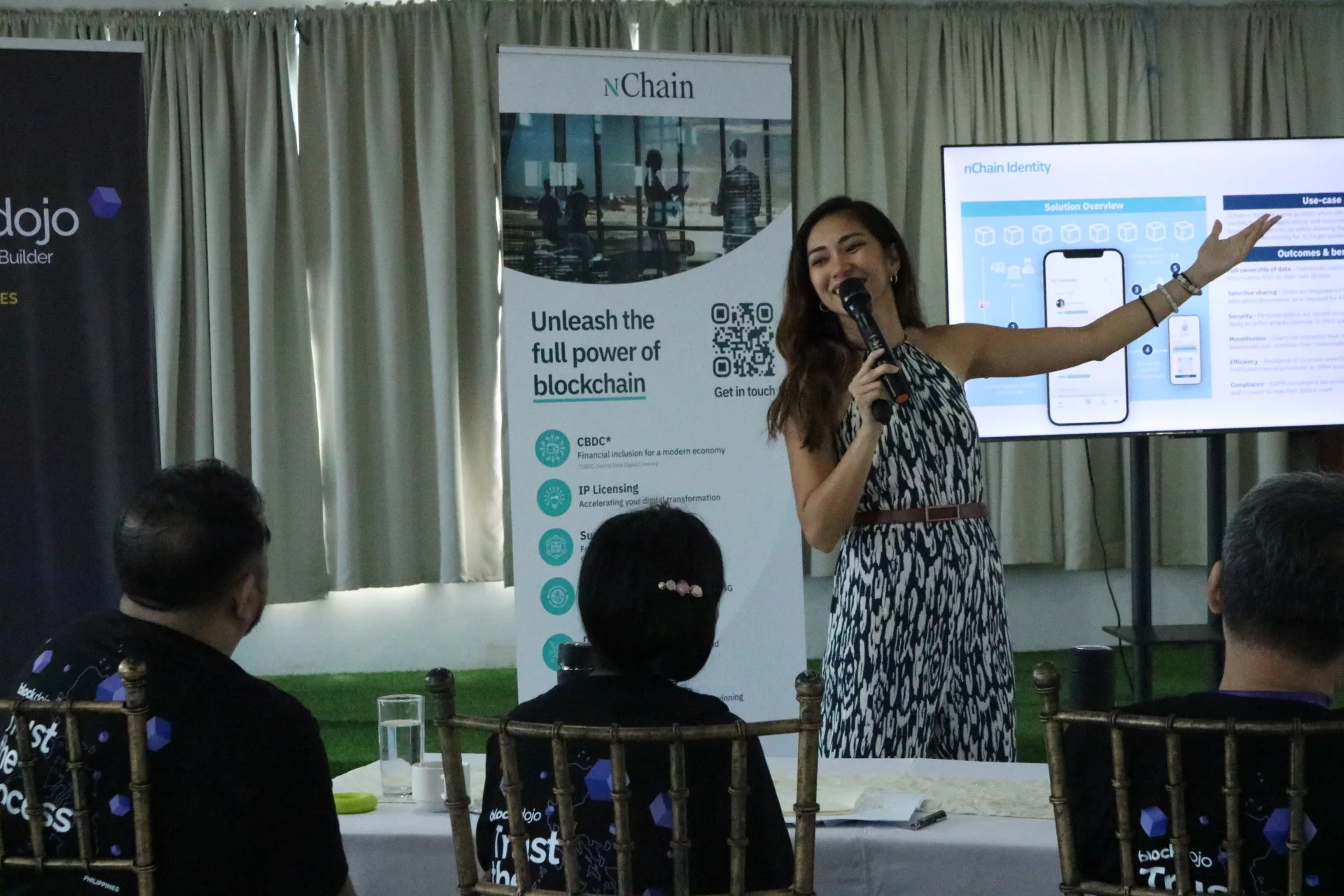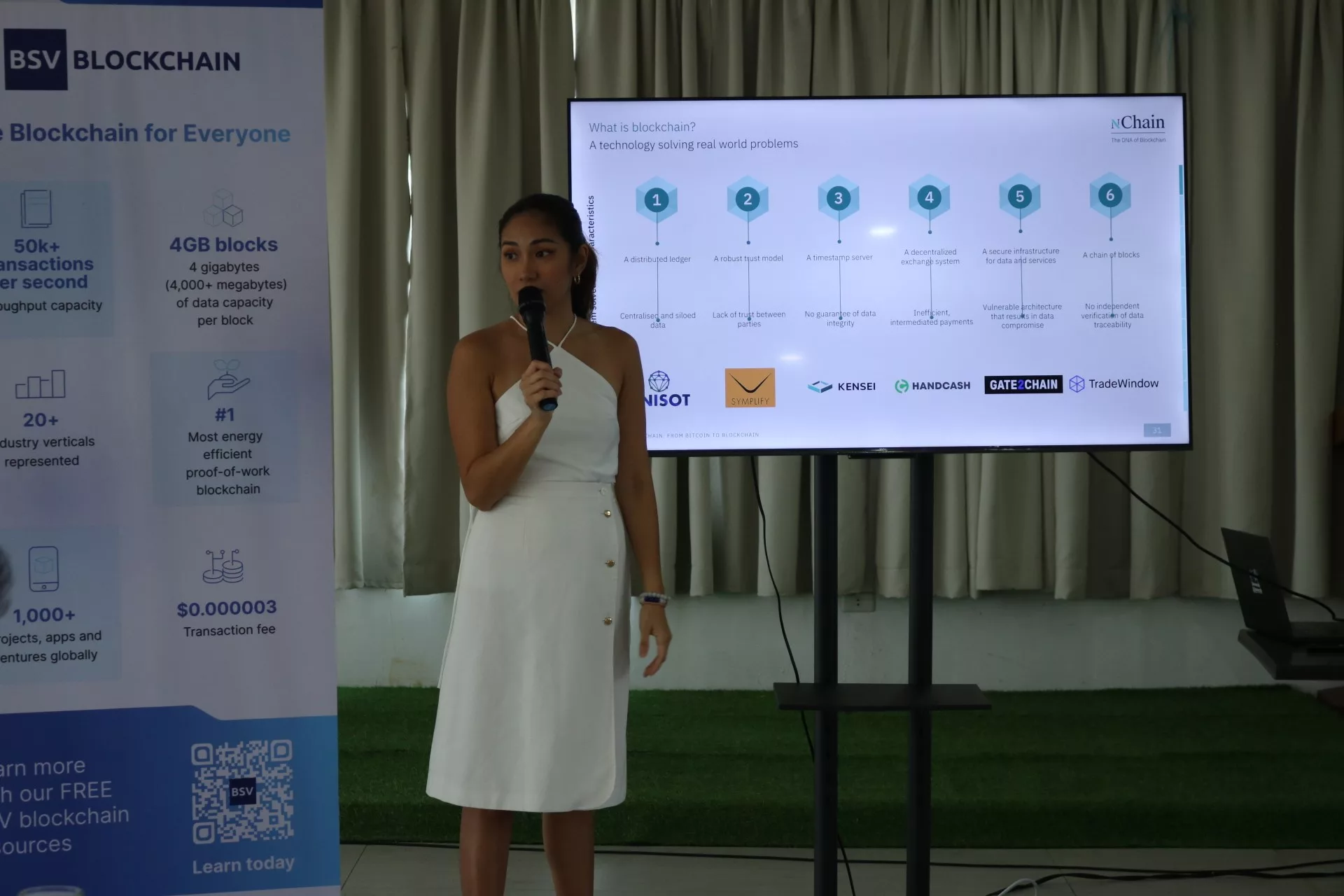
|
Getting your Trinity Audio player ready... |
nChain aims to transform the world from Web2 to Web3. This is one of the major talk points made by Stephanie Tower, who educated the founders of Block Dojo Philippines‘ first cohort about blockchain and the firm’s initiatives.
Tower, who leads the business development of nChain in the Philippines, takes the founders on a 45-minute journey on the fundamentals of blockchain, Web3. Check it out below!

Who is nChain, and what do they do?
Kickstarting her keynote speech on Day 2 of the bootcamp, Tower made a lively entrance by asking the founders about the common “kasabihan” or sayings in the Philippines. Everyone agreed that one of the most common and relatable sayings is “Time is Gold.” However, it was noted that this saying doesn’t always apply in the country due to the long hours of commuting and the time-consuming processing of government documents and IDs.
“These are occurrences that seem to be normal in ordinary Filipinos’ lives, but do they have to remain like that?” Tower asked. “When we look back to the saying time is gold, we often find it as a subject to jokes, but in fact, you’ll realize that time is indeed golden, but it’s not being manifested in the Philippines.”
With a population of over 119 million, the Philippines continues to be highly dependent on manual labor, and procedures in conjunction with manual processes often involve high paper consumption. In 2022 alone, manufacturing of paper and paper products
amounted to approximately PHP 31.1 billion (US$557 million). Looking at these inefficiencies, nChain sees wasted opportunities and time that could be used for better purposes.

nChain is a leading global provider of blockchain technology, IP licensing, and consulting services. With offices in London, Slovenia, and the Philippines and headquartered in Zug, Switzerland, nChain holds over 3,000 patents about blockchain and research and provides a vast range of new business opportunities in strategic and technical consultancy, software solutions, end-to-end development and, most notably, incubation and investments.
“Our vision is to enable each one of us. Not just entrepreneurs, not just governments, but actual individuals to have equal access to resources and tools so we can all participate in the global economy,” Towers remarked.
“The mission is to make the global economy accessible by making sure that we reduce cost. Solving inefficiencies and just digitalizing and automating processes. That’s the very idea of what [nChain] is trying to do here—we are trying to drive the business of digital transformation,” she added.
Understanding Web3: Blockchain 101 with Stephanie Tower
The following day, Tower briefly introduced blockchain and Web3 and provided the founders with important facts and foundations about the technology.
“You’ve been hearing about Web3, but do you really understand what it means?” Tower began her short presentation.
In an overview, Tower described the history of the Web starting with its first iteration, Web1. In the Web1 era, the internet only allows the sharing of information, and that’s it. According to the nChain’s Development Lead – Philippines, Web1 doesn’t support a two-way relationship, which its second iteration—Web2—does.
“Then Web2 happened. This is the era where we are about, the social media age,” she said. Now, in Web2, we can exchange information mostly for free. However, this free market is powered by private entities like Silicon Valley, who monetize our data. “That is what Web3 will change. On Web3, we get to own our data and decide if we want to monetize it or give it for free. This is where the idea of the peer-to-peer global economy is gonna be manifested. This is where blockchain will play a huge role,” Tower added.

Continuing with her keynote presentation, Tower discussed that not every business needs blockchain. Still, many will thrive with the help of the tech as it unlocks digital silos, allows for peer-to-peer interaction (decentralization), and guarantee data integrity because the system is timestamped and transparent.
“It’s important for you because you are in this cohort. You’re going to be utilizing blockchain. So it’s essential for you to understand what blockchain can help solve,” Tower reminded the Block Dojo Philippines cohort 1 founders.
Moving on, Tower discussed some popular misconceptions about blockchain, highlighting its involvement with “crypto,” scaling issues, energy consumption, regulations, and anonymity.
“Most blockchains can’t scale, but BSV blockchain can,” Tower pointed out. “If the world started being powered by blockchain, imagine the amount of transactions, [it’s] going to be billions and even trillions of transactions a day. If it can be processed in a block, like
Teranode, then it offsets the number of energy, the carbon credits that we [currently] use.”
A lot of learnings were made during the week-long bootcamp of Block Dojo Philippines. For more updates regarding the Block Dojo Philippines, subscribe to CoinGeek and follow us on our social media pages.
Watch: Bataan gov’t & nChain are aiming to bring the Philippines to its golden digital age
Recommended for you
Lorem ipsum odor amet, consectetuer adipiscing elit. Elit torquent maximus natoque viverra cursus maximus felis. Auctor commodo aliquet himenaeos fermentum
Lorem ipsum odor amet, consectetuer adipiscing elit. Accumsan mi at at semper libero pretium justo. Dictum parturient conubia turpis interdum

 11-21-2024
11-21-2024


